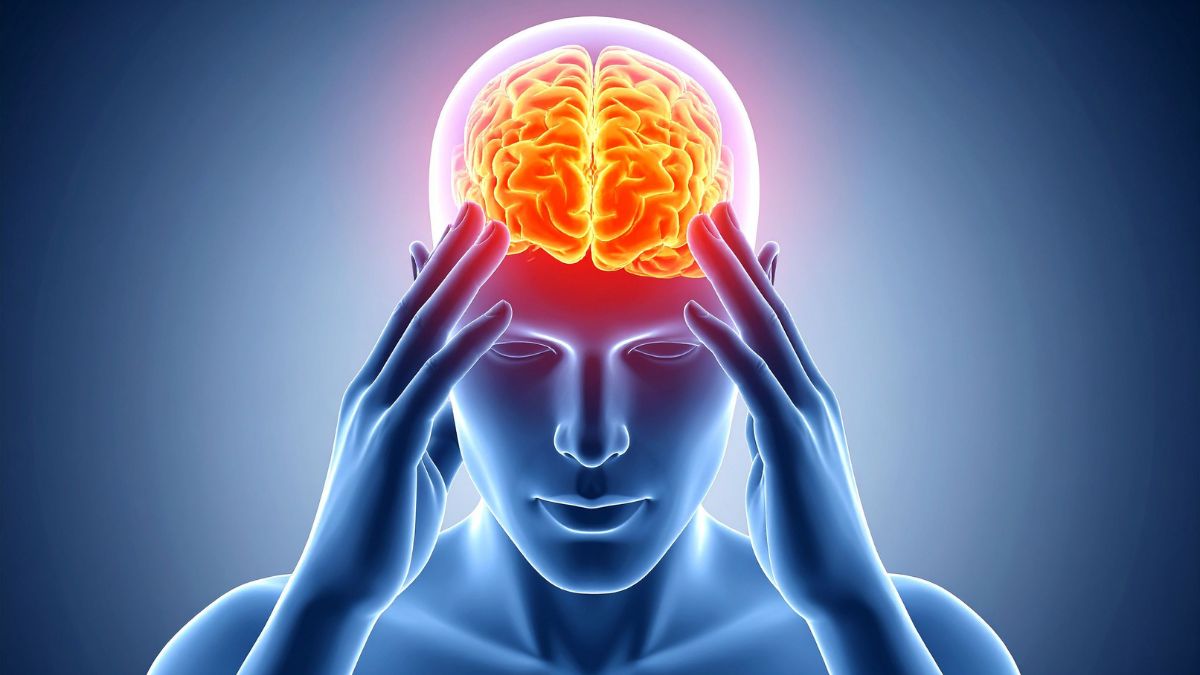- By Bornika Das
- Sun, 02 Nov 2025 06:04 PM (IST)
- Source:JND
Prolonged stress and insufficient rest have become the hallmarks of modern life, silently weakening one of the most important organs in the body: the brain. When stress hormones like cortisol reach high levels too frequently, they interfere with the communication between nerve cells, reducing the capability to retain and recall memory. At the same time, the renewing work of the brain is highly dependent on deep sleep cycles for processing information and removing toxins gathered throughout the day. These two factors combine into a self-reinforcing feedback loop that works to gradually weaken cognitive efficiency, emotional stability, and general brain health, making daily functioning increasingly difficult with each passing day.
Sleep is not a passive state of rest, but an active period of mental reorganisation and repair. In quality sleep, neural pathways consolidate information learned during wakefulness, strengthening areas related to focus and logical reasoning. Conversely, if one is sleep-deprived and under chronic stress, decision-making abilities are heavily impaired. The hippocampus, a complex brain structure involved in memory consolidation, is especially vulnerable. In conversation with The Daily Jagran, Dr. Shivakumar R, Head and Senior Consultant Neurology, Manipal Hospital Sarjapur Road, shares how stress and lack of sleep affect memory and brain health.
How Stress Screws With Memory
Stress isn't necessarily a bad thing. Used in small spurts, it can drive us to concentrate and accomplish. But when stress persists such as piling deadlines, family drama, or incessant worry it begins to have an opposite effect. Dr. Shivakumar R states, “Your body continues to secrete cortisol, the hormone of stress, and over the long run this degrades the area of your brain responsible for memory.” That's why chronically stressed individuals tend to feel dazed, unfocused, or forgetful. It's not a weakness, it's science.
Recommended For You
ALSO READ: 6 Herbal Teas That Naturally Reduce Stress And Help You Feel Calm; Chamomile, Tulsi And More
Why Sleep Is Memory’s Best Friend
Think of sleep as your brain’s housekeeping crew. While you’re out cold, your brain is busy sorting through the day’s information, deciding what to keep and what to toss. This “filing” mostly happens in deep sleep and REM sleep. Dr. Shivakumar R explains, “Skimp on those, and your brain doesn’t finish the job. That’s why, after a late night, everything feels harder to recall. And if chronic sleeplessness develops, it not only impacts memory, now it also erodes long-term brain function.”
Stress and Sleep: A Two-Way Street
Here's the bad news: stress makes it harder to sleep, and poor sleep makes stress worse. You may lie awake worrying about tomorrow's tasks, or wake up at 3 a.m. with your mind in overdrive. Then, the next day, your stress weighs even more heavily on you because you didn't get a good night's sleep. Shattering this cycle is the key if you hope your memory and your mood are going to recover.

Brain Health And Memory (Image Credits: Canva)
What You Can Do
Develop a wind-down routine: Place the phone in another room an hour before bedtime, turn down the lights, perhaps read something relaxing or listen to soothing music.
Practice stress breaks: Even five minutes of slow breathing or a brief walk can recalibrate your system.
Exercise your body: Routine physical activity decreases stress and causes you to sleep more soundly.
Monitor what and when you eat: Late-evening heavy meals and excessive caffeine in the evening can derail sleep.
Show respect for your sleep times: As close to 7–9 hours as possible, keep your wake and sleep times as consistent as you can.
Memory is not so much a matter of willpower; it's a matter of how well you take care of your brain. Taking care of stress and safeguarding your sleep aren't indulgences; they're essentials if you want a keen mind. And the next time you find yourself tempted to plough through another all-nighter or wear stress like a badge of honour, keep in mind: your brain is listening, and it recalls the way you treat it.





